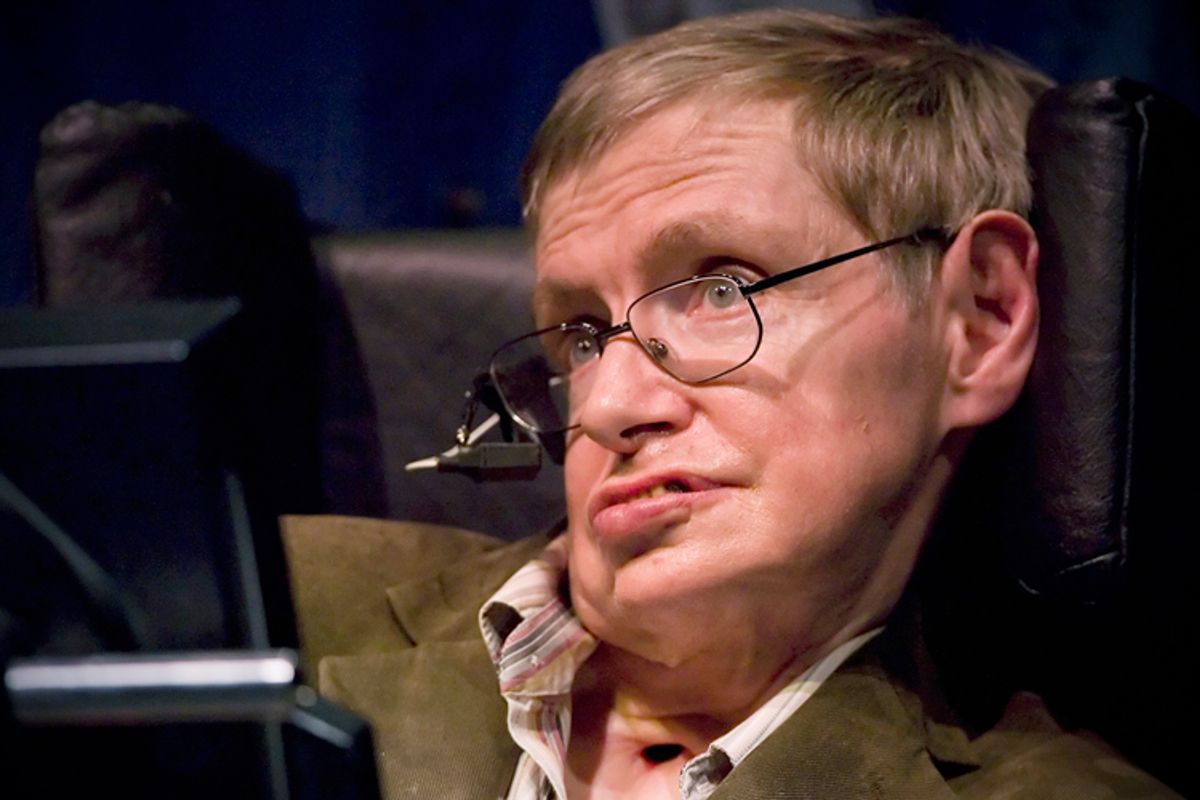In a forthcoming interview set to air on the BBC, theoretical physicist Stephen Hawking disclosed that he would consider aid in dying, as keeping "someone alive against their wishes is the ultimate indignity."
"I would consider assisted suicide only if I were in great pain or felt I had nothing more to contribute but was just a burden to those around me," he said in the conversation with comedian Dara O'Briain. "I am damned if I'm going to die before I have unraveled more of the universe."
Hawking, who suffers from a rare form of amyotrophic lateral sclerosis (ALS), also revealed that he is often lonely.
"At times I get very lonely because people are afraid to talk to me or don't wait for me to write a response," he said. "I'm shy and tired at times. I find it difficult to talk to people I don't know."
"I would like to be able to swim again," he continued. "When my children were young, I missed not being able to play with them physically."
The Guardian's Jessica Elgot noted that Hawking has been supportive of aid in dying in the past:
Hawking, who is the director of research at the Centre for Theoretical Cosmology at the University of Cambridge, has said those who help their loved ones who want to die should be immune from prosecution.
But he has also said he believes safeguards should ensure a person genuinely wishes to die, pointing to a famous incident in his own life. In 1985, when suffering complications from pneumonia, his then-wife, Jane, refused to turn off his life support machine. Hawking recovered and went on to complete his critically and popularly acclaimed book A Brief History of Time.
The BBC program will feature a more in-depth interview with Hawking, as well as conversations with his children. O'Briain, who has a degree in theoretical physics himself, said Hawking gave "impressively honest answers, even to the most direct questions."



Shares